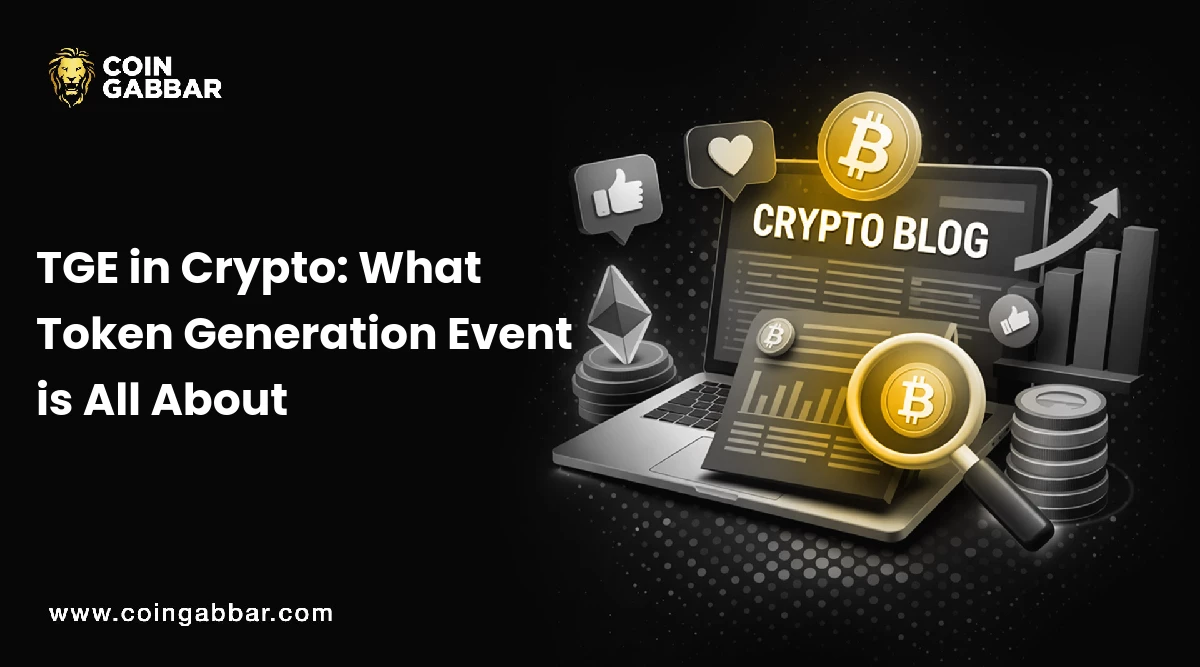
A Token Generation Event (TGE) is a fundraising method employed by blockchain projects, where native tokens are sold to investors and supporters. These tokens act as digital assets, representing either ownership in the project or utility within its ecosystem. TGEs have revolutionized decentralized crowdfunding, allowing startups to secure financial backing from a global investor base, bypassing traditional methods like venture capital. This inclusive approach has empowered innovators and entrepreneurs worldwide to realize their ideas and build decentralized applications (dApps) and platforms for example recently Hamster Kombat has announced its TGE to engage its 80 MIllion Community.
Token Generation Events (TGEs) have emerged as a popular method for blockchain projects and companies to raise capital. By issuing their native tokens, these projects can garner support from early backers, providing them with digital assets tied to specific products, services, or decentralized applications (DApps). TGEs represent a shift towards decentralized crowdfunding, offering a more democratic way for startups to secure financial backing from a global investor base without relying on traditional funding methods like venture capital.
The process of a TGE includes several important steps:
Token Creation: Before launching a TGE, a project develops its native tokens, typically using blockchain platforms like Ethereum or Binance Smart Chain. These tokens are often based on smart contracts that follow specific standards, such as ERC-20, ensuring compatibility with existing wallets and exchanges.
Whitepaper Release: The project team publishes a comprehensive whitepaper that outlines the project's vision, technical details, use cases, and the problems it aims to solve. Investors rely on this document to assess the project's potential and decide whether to participate in the TGE.
Pre-sale and Public Sale: TGEs generally have two phases: a pre-sale and a public sale. The pre-sale allows early investors to buy tokens at discounted prices, while the public sale is open to a broader audience at standard prices. Transactions are typically conducted using popular cryptocurrencies like Bitcoin (BTC), Ether (ETH), or Tether (USDT).
Fund Allocation: The funds raised during the TGE are allocated according to the project's whitepaper, typically covering development costs, marketing, team salaries, and operational expenses.
TGEs can take various forms, each with unique characteristics:
Initial Coin Offerings (ICOs): Initial Coin Offerings (ICOs) are among the first types of Token Generation Events (TGEs), where projects offer their native tokens to investors. The capital raised through ICOs is typically used for project development. ICOs became particularly popular in 2017 during the altcoin surge, with numerous projects launching their tokens on the Ethereum blockchain.
Security Token Offerings (STOs): Unlike utility tokens, STOs issue tokens that are considered securities, representing ownership in a project or company. These tokens may offer financial benefits such as dividends or profit sharing. STOs are subject to securities regulations to ensure compliance and protect investors.
Initial Exchange Offerings (IEOs): In an IEO, a cryptocurrency exchange facilitates the token sale on behalf of the project. The exchange vets the project before listing it, providing an added layer of security and credibility for investors.
Initial DEX Offerings (IDOs): Similar to IEOs, IDOs take place on decentralized exchanges (DEXs). This method allows for a more community-driven and decentralized approach to token sales, often involving active participation from the project's community.
TGEs typically involve two main types of tokens:
Utility Tokens: These tokens provide access to specific products or services within the project's ecosystem. They are not typically considered investments and do not represent ownership in the project. Instead, they facilitate interactions and transactions within the platform.
Security Tokens: These tokens represent ownership or financial rights in a project. They may offer dividends, profit sharing, or other financial benefits and are subject to securities regulations to ensure investor protection.
Token Generation Events (TGEs) and Initial Coin Offerings (ICOs) are both methods for raising funds in the cryptocurrency sector. ICOs typically focus on launching coins, whereas TGEs are more commonly associated with issuing utility tokens tied to specific projects or services. TGEs generally steer clear of securities regulations, unlike ICOs, which may involve security tokens and are subject to more stringent regulatory oversight.
Token Generation Events (TGEs) play a crucial role in the blockchain ecosystem, enabling projects to raise funds and distribute tokens to early supporters. By understanding the various types of TGEs, the token creation process, and the differences between ICOs and TGEs, investors can make informed decisions when participating in these events. As blockchain technology continues to evolve, TGEs will likely remain a vital tool for driving innovation and growth in the decentralized economy.
Also Read: Hamster Kombat Listing Date is Officially Confirmed

Lokesh Gupta is a seasoned financial expert with 23 years of experience in Forex, Comex, NSE, MCX, NCDEX, and cryptocurrency markets. Investors have trusted his technical analysis skills so they may negotiate market swings and make wise investment selections. Lokesh merges his deep understanding of the market with his enthusiasm for teaching in his role as Content & Research Lead, producing informative pieces that give investors a leg up. In both conventional and cryptocurrency markets, he is a reliable adviser because of his strategic direction and ability to examine intricate market movements. Dedicated to study, market analysis, and investor education, Lokesh keeps abreast of the always-changing financial scene. His accurate and well-researched observations provide traders and investors with the tools they need to thrive in ever-changing market conditions.
8 months ago
Cardano news

9 months ago
Latest blockchain projects

9 months ago
Cryptocurrency tax news

9 months ago
Cardano news

9 months ago
Cryptocurrency regulation updates

9 months ago
Cryptocurrency scams and hacks

9 months ago
New cryptocurrency releases

9 months ago
Crypto news for beginners

9 months ago
Crypto market trends

9 months ago
Cryptocurrency trading news
